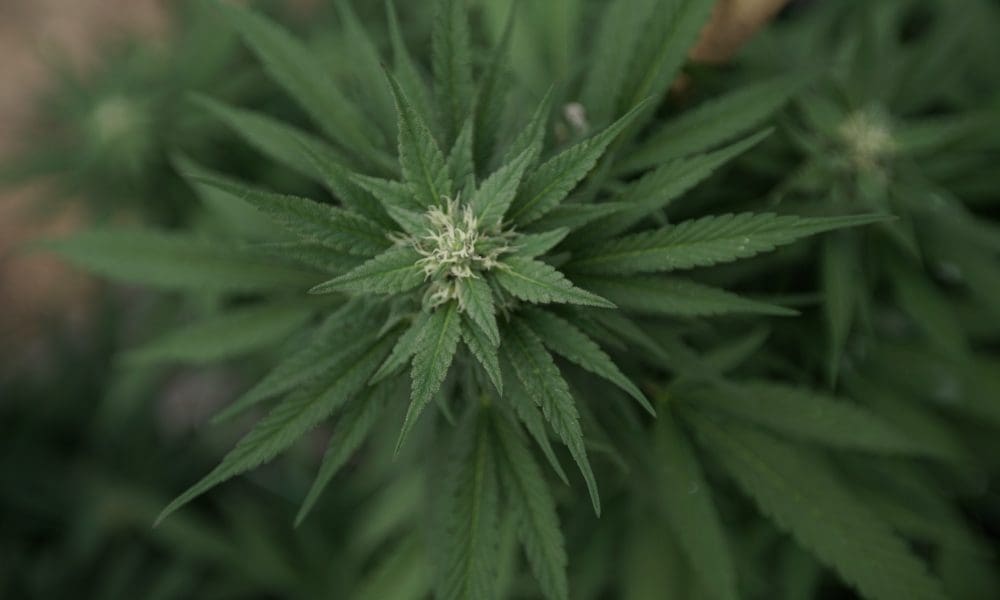A newly amended Florida bill would allow military veterans to skip the state registration fee for medical marijuana cards and obtain the certifications for free.
The bill, HB 555, was filed in February by Rep. Alex Andrade (R) and originally would have made more significant changes to the state’s existing medical cannabis program, for example allowing home cultivation as well as reciprocity for out-of-state patients. But on Thursday, the House Health Professions and Programs Subcommittee advanced a two-page substitute bill that instead would make only small changes to the program.
First, the measure would change how often patients need to renew their medical marijuana cards, from the current annual process to once every two years.
Second, it would also waive the $75 registration and renewal fees for veterans, specifying that the state “may not charge a fee for the issuance, replacement, or renewal of an identification card for a qualified patient who is a veteran.”
Veterans would need to include their discharge form (DD 214) along with their applications.
“It certainly does help in the medical marijuana space, and it certainly helps veterans,” Rep. Michelle Salzman (R) said at Thursday’s hearing, according to a report by Action News Jax.
Jodi James, with the Florida Cannabis Action Network, told the publication that the group is “really excited about making medicine more available to people on a fixed income, and particularly our veterans.”
Rep. Lavon Bracy Davis (D) told Florida Politics: “I love this bill.”
If HB 555 becomes law, the changes would take effect July 1.
Separately in the Florida Senate, a lawmaking panel recently advanced to the chamber floor a bill that would restrict hemp-derived cannabinoids.
Among other changes, that proposal would forbid any amount of synthetic cannabinoids, including delta-8 THC. The amount of delta-9 THC in hemp-derived products, meanwhile, couldn’t be more than five milligrams per serving or 50 milligrams per container.
The amount of THC in hemp-infused drinks to just five milligrams per container, and the beverages could be sold only by retailers with liquor licenses—a provision backed by lobbyists representing the beer and wine industries.
Committees in both the House and Senate also recently advanced a broad agricultural bill containing a provision that would outlaw the spores of psychedelic mushrooms.
Because the spores don’t contain any controlled substances themselves, the federal government deems them legal.
“If the mushroom spores (or any other material) do not contain psilocybin or psilocin (or any other controlled substance or listed chemical), the material is considered not controlled,” Terrence Boos, the Drug Enforcement Administration’s (DEA) Drug and Chemical Evaluation Section chief, said in a memo last year. (Using a similar rationale, Boos has said that marijuana seeds are considered federally legal hemp because they themselves don’t contain THC.)
In Florida, a legislative report for HB 651 similarly notes that “spores do not contain any psilocybin properties themselves and therefore could be considered legal under current law.”
Meanwhile, a state judge last month dismissed a lawsuit from the cannabis company Trulieve against the state Republican Party over last year’s failed constitutional amendment that sought to legalize adult-use marijuana.
The company had argued that the GOP’s opposition campaign was “intentionally deceptive,” with “demonstrably false” claims that were “trying to fool Florida voters” into opposing the reform, but a the judge disagreed.
The campaign behind the failed legalization effort, Smart and Safe Florida is already gearing up for another ballot fight next year, having so far submitted just over 7,500 valid signatures of the 891,523 needed to make the 2026 ballot, according to the Florida Division of Elections.
The campaign’s 2026 iteration includes several changes that seem responsive to issues raised by critics about the 2024 version.
A recent survey from the University of North Florida found that, despite last year’s ballot proposal failing, there’s overwhelming, bipartisan voter support for the reform. It showed that 67 percent of Florida voters now back legalization, including 82 percent of Democrats, 66 percent of independents and 55 percent of Republicans.
The results conflict with another recent poll from the Florida Chamber of Commerce, a proactive opponent of legalization, that found majority support for the reform among likely voter (53 percent) but not enough to be enacted under the 60 percent requirement.
Meanwhile, Gov. Ron DeSantis (R) said in January that the latest version of the legalization initiative is in “big time trouble” with the state Supreme Court, predicting it will be blocked from going before voters next year.
Photo courtesy of Chris Wallis/Side Pocket Images.
A newly amended Florida bill would allow military veterans to skip the state registration fee for medical marijuana cards and obtain the certifications for free. The bill, HB 555, was filed in February by Rep. Alex Andrade (R) and originally would have made more significant changes to the state’s existing medical cannabis program, for example Read More


